I always see myself as a Parsi first. In Lahore I see myself as a Punjabi first, then a Pakistani, and then an Indian, in that order, says ,b>Bapsi Sidhwa
The recipient of the Sitara-i-Imtiaz, Pakistan’s highest national honor in the arts, in 1991, Bapsi Sidhwa is the author of four internationally acclaimed novels, including The Crow Eaters (1980) and Ice Candy Man (1988). Born in Karachi and brought up in Lahore, she now lives in Houston, Texas.
How would you describe yourself as an author?
I always see myself as a Parsi first. In Lahore I see myself as a Punjabi first, then a Pakistani, and then an Indian, in that order. I see myself as a Bombayite also. I got married here and became an Indian citizen. After my divorce I went back to Lahore. Then I migrated to the US and now I am a US citizen too.
Do you still feel that “We Parsis are people without a land” as you once mentioned?
This is true. I have never felt that I belong anywhere. People in Lahore have accepted us with open arms. But that shared language, that shared sense of humour is only there when I am with Parsis. One of my very good friends in Lahore brought a marriage proposal for my daughter. My first reaction was ‘Oh God no. That can’t be! We are Parsis.’ And she was shocked.
Why an anthology on Lahore?
Because Penguin asked me to. You see they have a book on Bombay, they have a book on Delhi, Amit Chaudhri is doing one on Calcutta, and they wanted one on Lahore too. I had no idea it would take so long. It has eaten up three years of my life. But it was worth it.
What criteria did you have for choosing the pieces that have gone into this book?
I wanted to portray Lahore as a city which was so vibrant, pre-partition also. So I took a lot of Indian writers too. I wanted to include a lot of poetry, because poetry is very alive there. You are sitting with a bureaucrat and at the drop of a hat, he will rattle off a poem. Then there are different eras and different empires…Lahore has been through such a lot, and I wanted the book to have all of that.
Is there a lot of moral policing in Lahore like it was in the times of the Lihaf trial?
Not in Lahore. If the mullahs sometimes dare say something like, “Cover your heads,” the Punjabi women will turn round and say, “You cover your eyes.”
What is the position of women in Lahore today?
A lot of women are becoming teachers, doctors. If the family starts doing well, they see to it that their women folk are well educated. But the slightest rise in status, say from the Ayah class to the higher class — that’s when they retreat into the purdah. The purdah is a status symbol. But these days in the cities there is very little purdah.
Your memories of the Partition?
Next to our house in Lahore, overnight we saw a big padlock on the servant’s quarter of the house that our Hindu neighbour had fled from. There was a very hefty Sikh guarding the house and a whole bunch of Sikh women came to live there. My brother and I thought it was a woman’s jail. Then I realised that these were the “fallen” women. After Partition they were “recovered”. They had been kidnapped and raped. I was the first one ever to write about these women in Ice Candy Man. I wanted to talk about these women. Nobody ever talked about them. It was only after Deepa Mehta’s Earth was released that people came up to me and said “We never knew all this happened during partition.”
Why did people never talk about these horrific incidents before you set the ball rolling as it were?
They wouldn’t do so. After all it was their ‘izzat’ at stake. It was all hush-hush. I grew up with stories about something happening to someone’s mother, aunt, sister-in-law…it was only later that I realised that they had been raped. No one wrote about it, not even Khushwant Singh.
What next?
I have written a novel based on Deepa Mehta’s film Water. She phoned me and asked me to write a novel on the film. Her distributors and my publishers were keen that it should happen.
Didn’t you find that very confining as a creative writer?
First I thought it would be very confining. But it is not so difficult. I’ve realised that this is how formula writers write.
Who is a quintessential Lahori in your opinion?
Strangely, after I wrote my three novels, I used to meet a lot of writers in Lahore and there used to be a Punjabi critic who used to say to them that the only true Punjabi is Bapsi. Lahore is embedded in her novels.
![submenu-img]() Aamir Khan was unsure if censor board would clear Sarfarosh over mentions of Pakistan, ISI: 'If Advani ji can say...'
Aamir Khan was unsure if censor board would clear Sarfarosh over mentions of Pakistan, ISI: 'If Advani ji can say...'![submenu-img]() Gurucharan Singh missing case: Delhi Police questions TMKOC cast and crew, finds out actor's payments were...
Gurucharan Singh missing case: Delhi Police questions TMKOC cast and crew, finds out actor's payments were...![submenu-img]() 'You all are scaring me': Preity Zinta gets uncomfortable after paps follow her, video goes viral
'You all are scaring me': Preity Zinta gets uncomfortable after paps follow her, video goes viral![submenu-img]() Viral video: Influencer dances with gun in broad daylight on highway, UP Police reacts
Viral video: Influencer dances with gun in broad daylight on highway, UP Police reacts![submenu-img]() Family applauds and cheers as woman sends breakup text, viral video will make you laugh
Family applauds and cheers as woman sends breakup text, viral video will make you laugh![submenu-img]() DNA Verified: Is CAA an anti-Muslim law? Centre terms news report as 'misleading'
DNA Verified: Is CAA an anti-Muslim law? Centre terms news report as 'misleading'![submenu-img]() DNA Verified: Lok Sabha Elections 2024 to be held on April 19? Know truth behind viral message
DNA Verified: Lok Sabha Elections 2024 to be held on April 19? Know truth behind viral message![submenu-img]() DNA Verified: Modi govt giving students free laptops under 'One Student One Laptop' scheme? Know truth here
DNA Verified: Modi govt giving students free laptops under 'One Student One Laptop' scheme? Know truth here![submenu-img]() DNA Verified: Shah Rukh Khan denies reports of his role in release of India's naval officers from Qatar
DNA Verified: Shah Rukh Khan denies reports of his role in release of India's naval officers from Qatar![submenu-img]() DNA Verified: Is govt providing Rs 1.6 lakh benefit to girls under PM Ladli Laxmi Yojana? Know truth
DNA Verified: Is govt providing Rs 1.6 lakh benefit to girls under PM Ladli Laxmi Yojana? Know truth![submenu-img]() Mother's Day 2024: Bollywood supermoms who balance motherhood, acting, and run multi-crore businesses
Mother's Day 2024: Bollywood supermoms who balance motherhood, acting, and run multi-crore businesses![submenu-img]() Rocky Aur Rani's Golu aka Anjali Anand shocks fans with drastic weight loss without gym, says fitness secret is...
Rocky Aur Rani's Golu aka Anjali Anand shocks fans with drastic weight loss without gym, says fitness secret is...![submenu-img]() In pics: Ram Charan gets mobbed by fans during his visit to Pithapuram for ‘indirect campaign’ for uncle Pawan Kalyan
In pics: Ram Charan gets mobbed by fans during his visit to Pithapuram for ‘indirect campaign’ for uncle Pawan Kalyan![submenu-img]() Streaming This Week: Yodha, Aavesham, Murder In Mahim, Undekhi season 3, latest OTT releases to binge-watch
Streaming This Week: Yodha, Aavesham, Murder In Mahim, Undekhi season 3, latest OTT releases to binge-watch![submenu-img]() Aamir Khan, Naseeruddin Shah, Sonali Bendre celebrate 25 years of Sarfarosh, attend film's special screening
Aamir Khan, Naseeruddin Shah, Sonali Bendre celebrate 25 years of Sarfarosh, attend film's special screening![submenu-img]() Haryana Political Crisis: Will 3 independent MLAs support withdrawal impact the present Nayab Saini led-BJP government?
Haryana Political Crisis: Will 3 independent MLAs support withdrawal impact the present Nayab Saini led-BJP government?![submenu-img]() DNA Explainer: Why Harvey Weinstein's rape conviction was overturned, will beleaguered Hollywood mogul get out of jail?
DNA Explainer: Why Harvey Weinstein's rape conviction was overturned, will beleaguered Hollywood mogul get out of jail?![submenu-img]() What is inheritance tax?
What is inheritance tax?![submenu-img]() DNA Explainer: What is cloud seeding which is blamed for wreaking havoc in Dubai?
DNA Explainer: What is cloud seeding which is blamed for wreaking havoc in Dubai?![submenu-img]() DNA Explainer: What is Israel's Arrow-3 defence system used to intercept Iran's missile attack?
DNA Explainer: What is Israel's Arrow-3 defence system used to intercept Iran's missile attack?![submenu-img]() Aamir Khan was unsure if censor board would clear Sarfarosh over mentions of Pakistan, ISI: 'If Advani ji can say...'
Aamir Khan was unsure if censor board would clear Sarfarosh over mentions of Pakistan, ISI: 'If Advani ji can say...'![submenu-img]() Gurucharan Singh missing case: Delhi Police questions TMKOC cast and crew, finds out actor's payments were...
Gurucharan Singh missing case: Delhi Police questions TMKOC cast and crew, finds out actor's payments were...![submenu-img]() 'You all are scaring me': Preity Zinta gets uncomfortable after paps follow her, video goes viral
'You all are scaring me': Preity Zinta gets uncomfortable after paps follow her, video goes viral![submenu-img]() First Indian film to be insured was released 25 years ago, earned five times its budget, gave Bollywood three stars
First Indian film to be insured was released 25 years ago, earned five times its budget, gave Bollywood three stars![submenu-img]() Mother’s Day Special: Mom-to-be Richa Chadha talks on motherhood, fixing inequalities for moms in India | Exclusive
Mother’s Day Special: Mom-to-be Richa Chadha talks on motherhood, fixing inequalities for moms in India | Exclusive![submenu-img]() Kolkata Knight Riders become first team to qualify for IPL 2024 playoffs after thumping win over Mumbai Indians
Kolkata Knight Riders become first team to qualify for IPL 2024 playoffs after thumping win over Mumbai Indians![submenu-img]() IPL 2024: This player to lead Delhi Capitals in Rishabh Pant's absence against Royal Challengers Bengaluru
IPL 2024: This player to lead Delhi Capitals in Rishabh Pant's absence against Royal Challengers Bengaluru![submenu-img]() RCB vs DC IPL 2024: Predicted playing XI, live streaming details, weather and pitch report
RCB vs DC IPL 2024: Predicted playing XI, live streaming details, weather and pitch report![submenu-img]() CSK vs RR IPL 2024: Predicted playing XI, live streaming details, weather and pitch report
CSK vs RR IPL 2024: Predicted playing XI, live streaming details, weather and pitch report![submenu-img]() RCB vs DC IPL 2024 Dream11 prediction: Fantasy cricket tips for Royal Challengers Bengaluru vs Delhi Capitals
RCB vs DC IPL 2024 Dream11 prediction: Fantasy cricket tips for Royal Challengers Bengaluru vs Delhi Capitals![submenu-img]() Viral video: Influencer dances with gun in broad daylight on highway, UP Police reacts
Viral video: Influencer dances with gun in broad daylight on highway, UP Police reacts![submenu-img]() Family applauds and cheers as woman sends breakup text, viral video will make you laugh
Family applauds and cheers as woman sends breakup text, viral video will make you laugh![submenu-img]() Man grabs snake mid-lunge before it strikes his face, terrifying video goes viral
Man grabs snake mid-lunge before it strikes his face, terrifying video goes viral![submenu-img]() Viral video: Man wrestles giant python, internet is scared
Viral video: Man wrestles giant python, internet is scared![submenu-img]() Viral video: Delhi University girls' sizzling dance to Haryanvi song sets the internet ablaze
Viral video: Delhi University girls' sizzling dance to Haryanvi song sets the internet ablaze
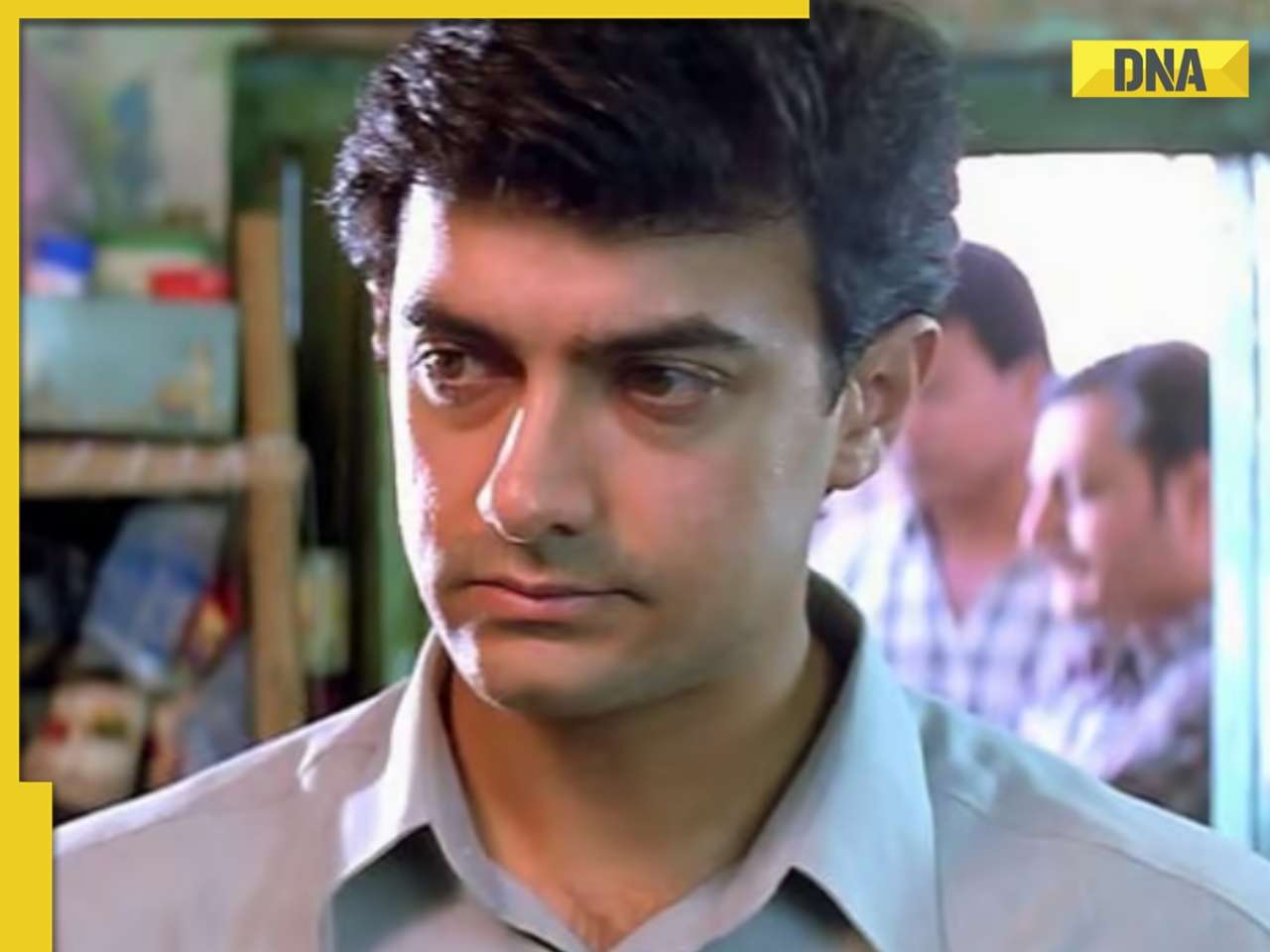
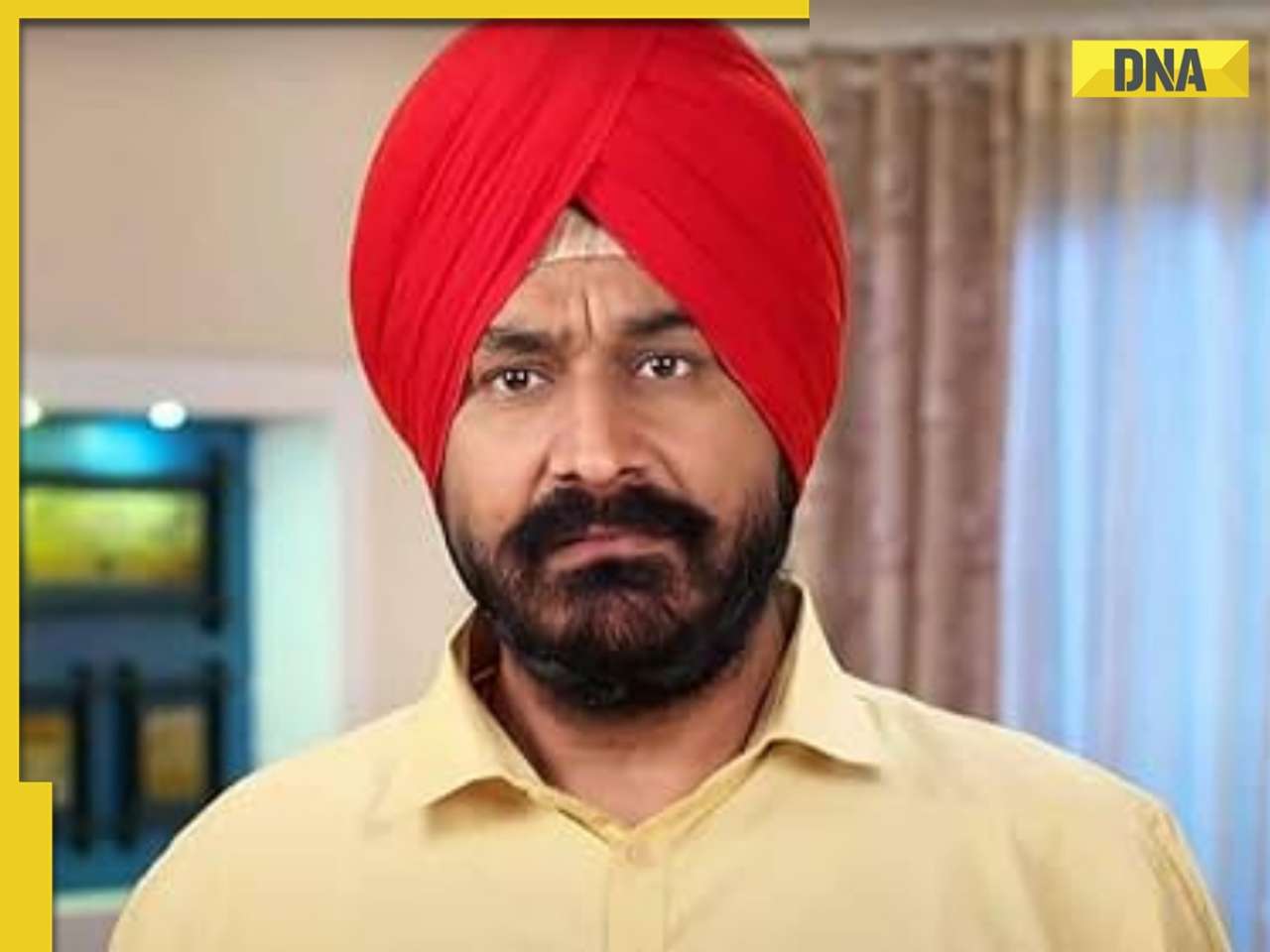
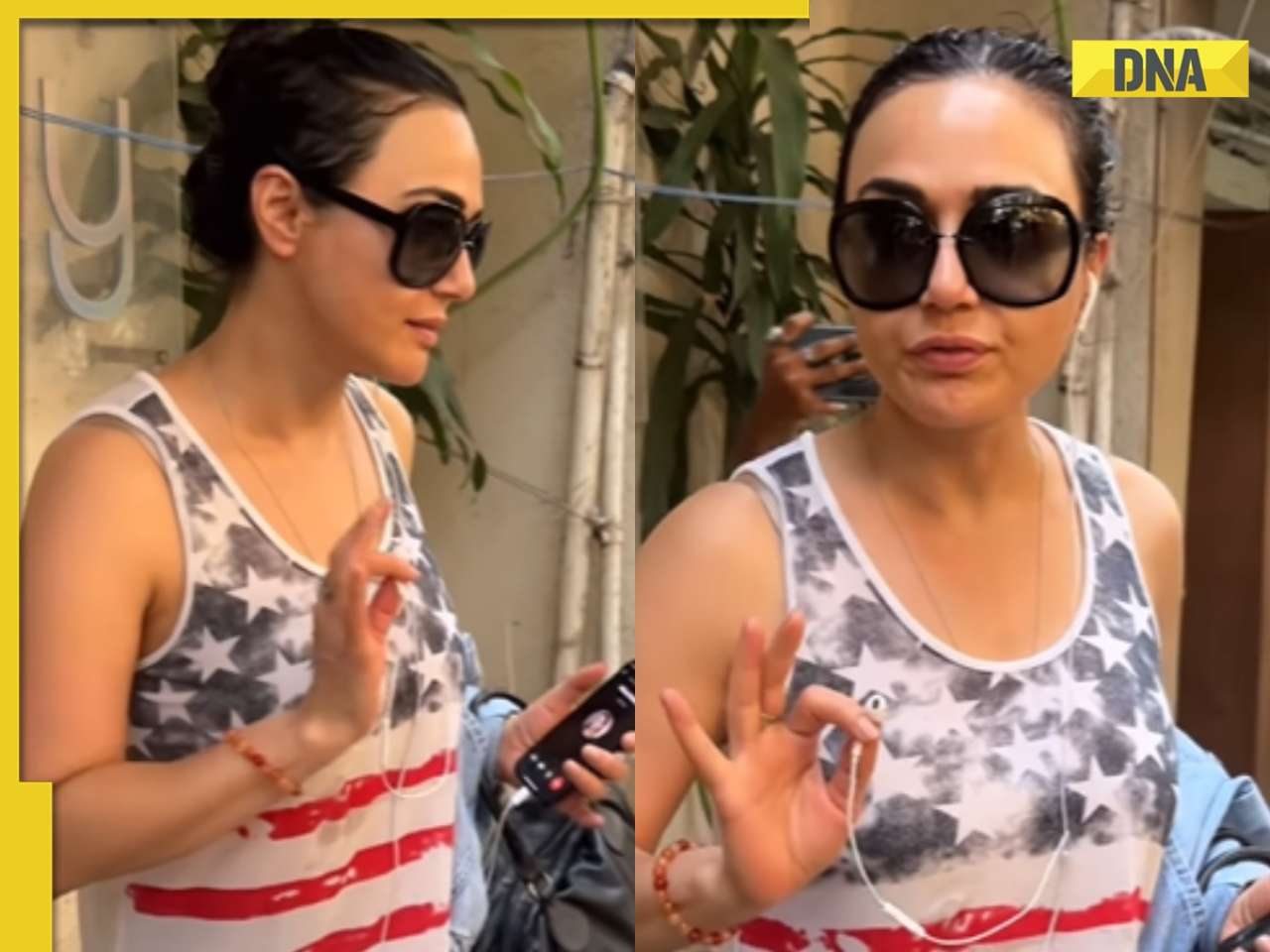
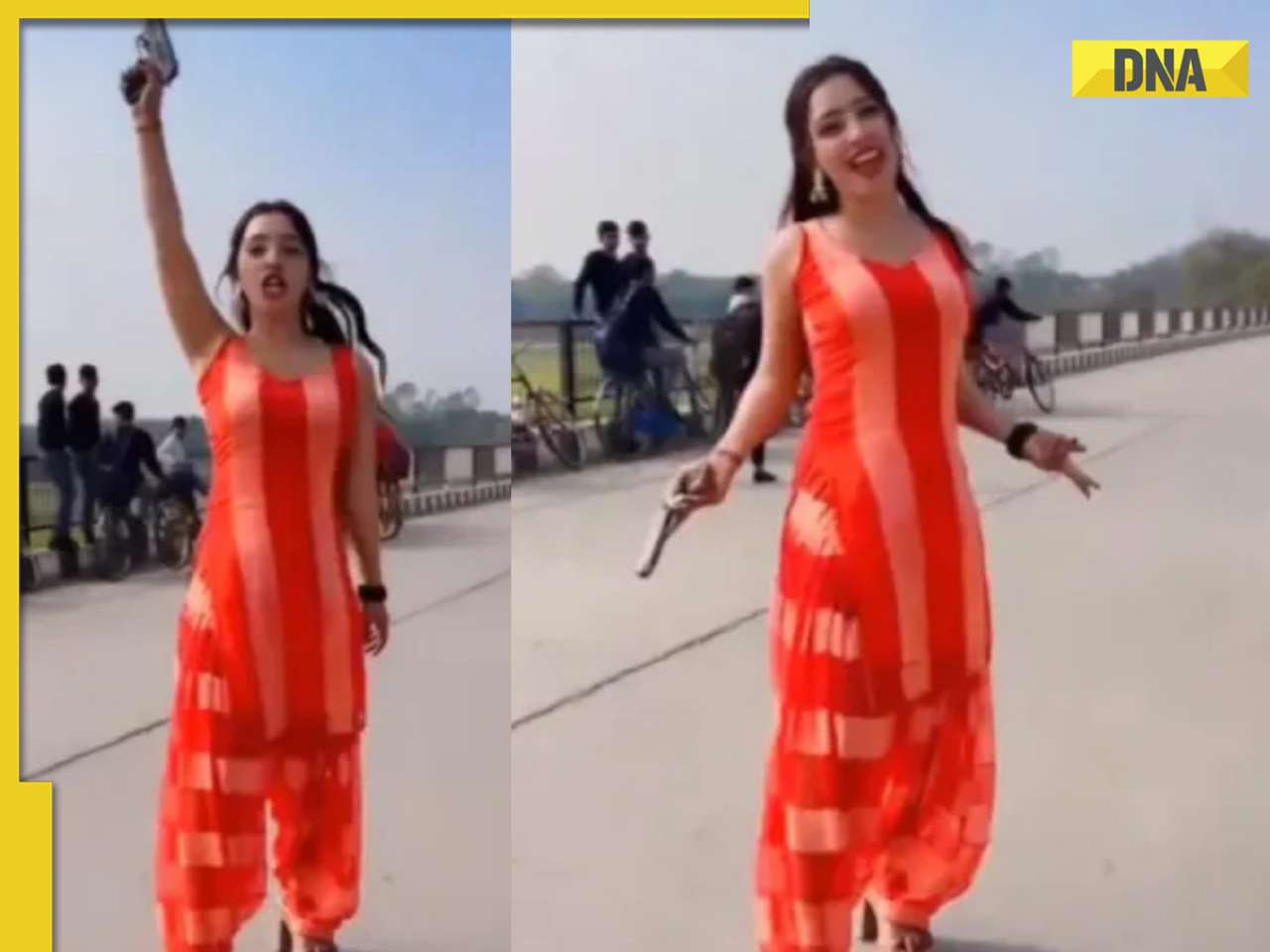



















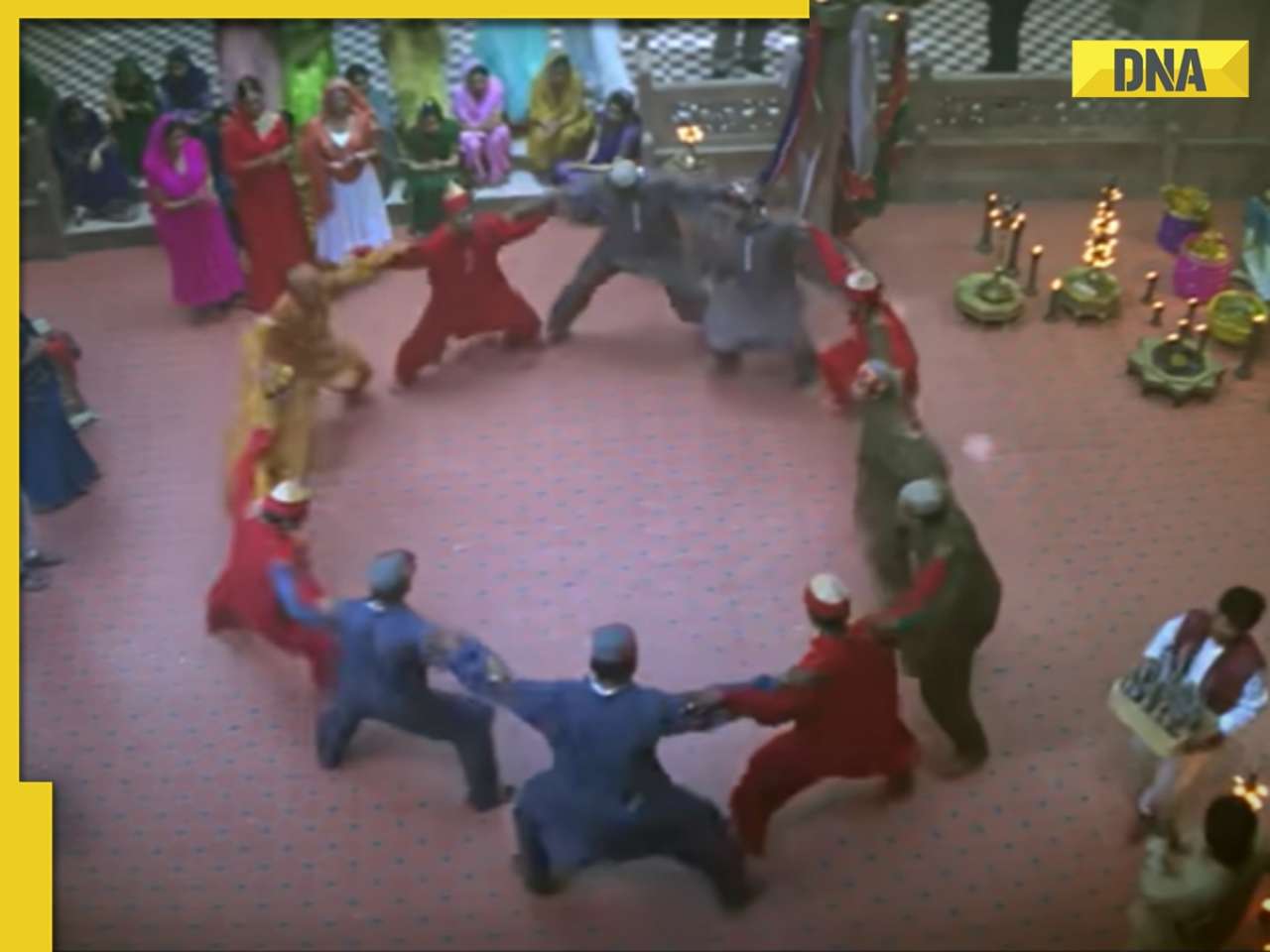
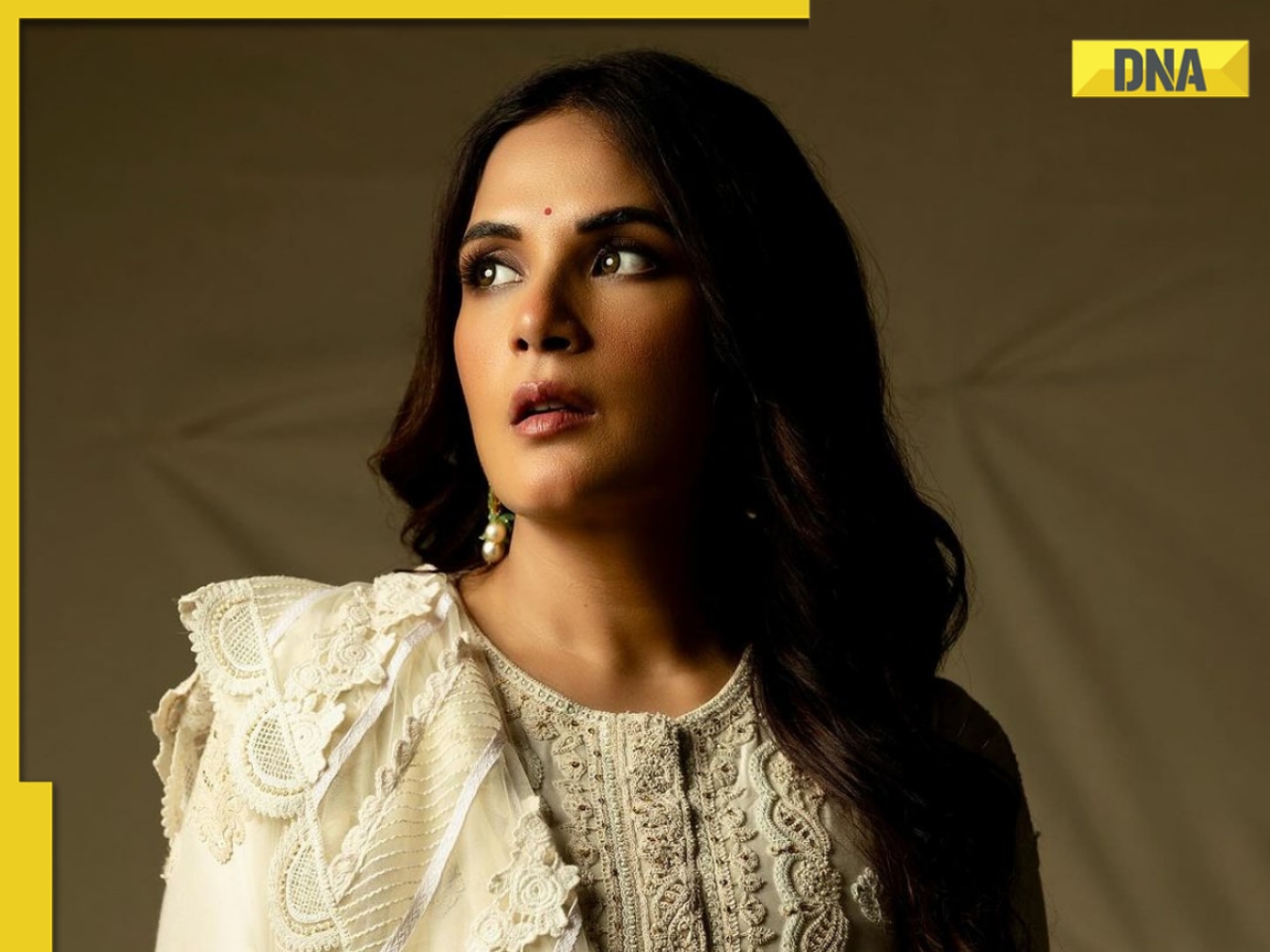
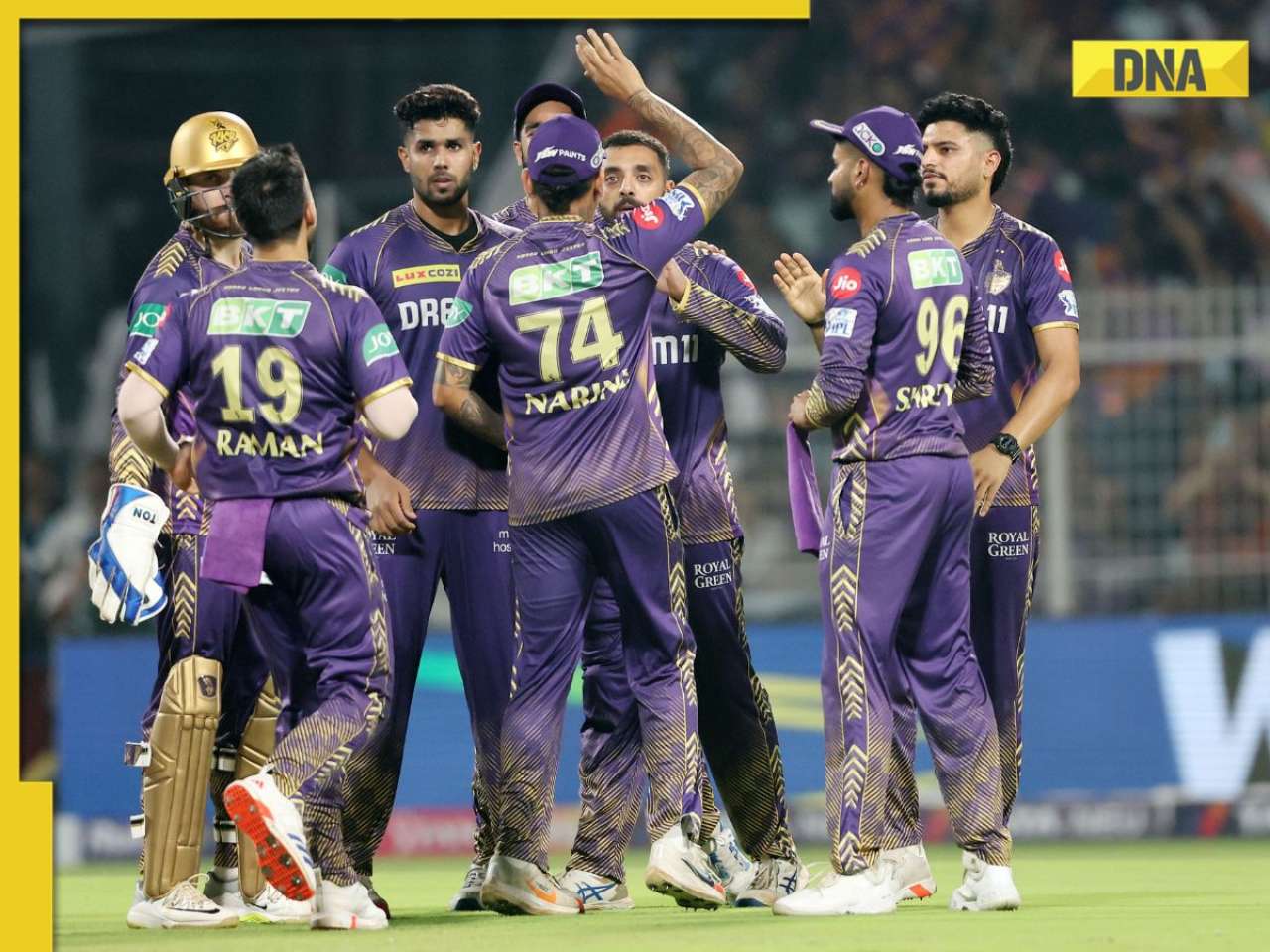
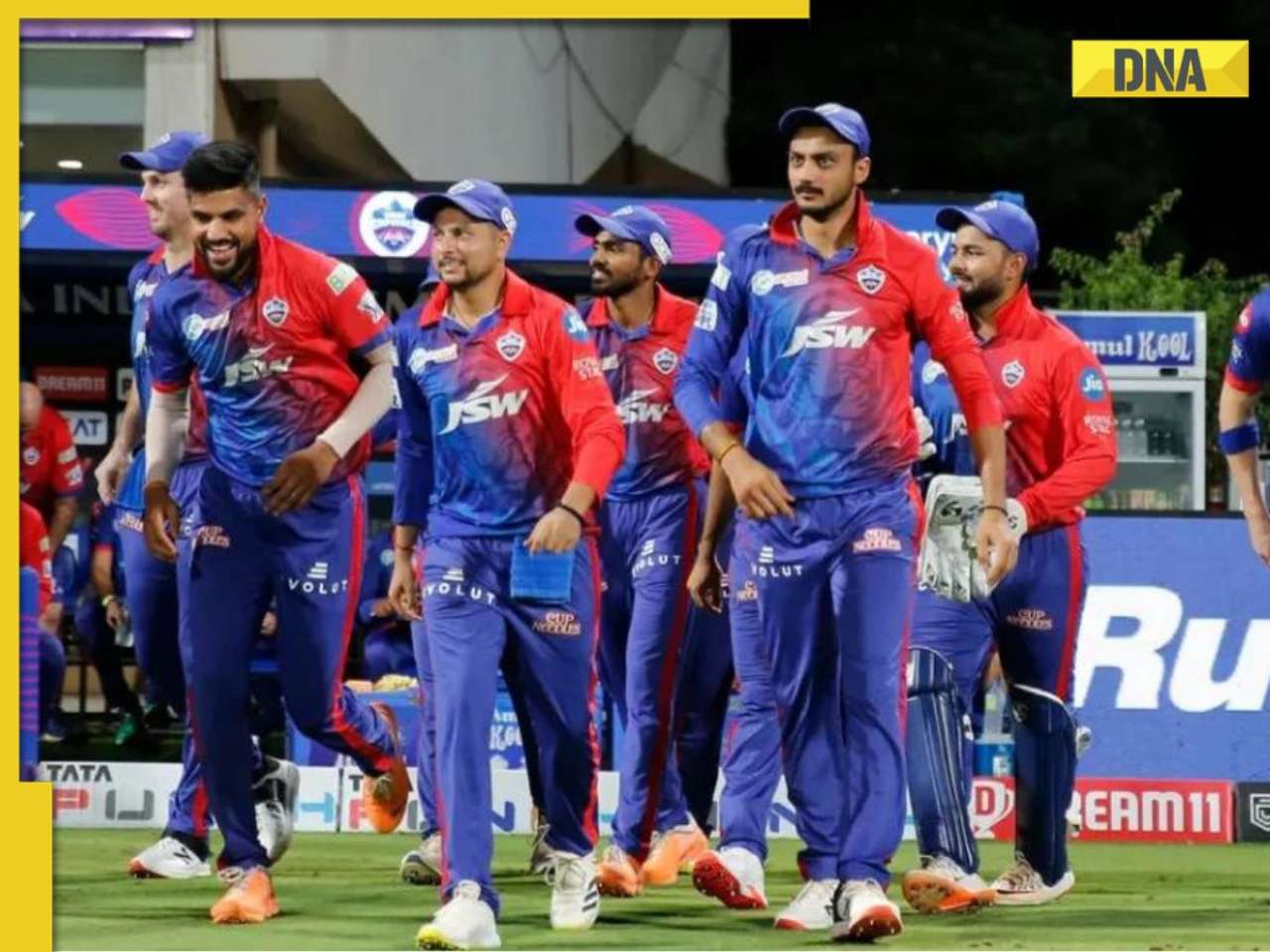
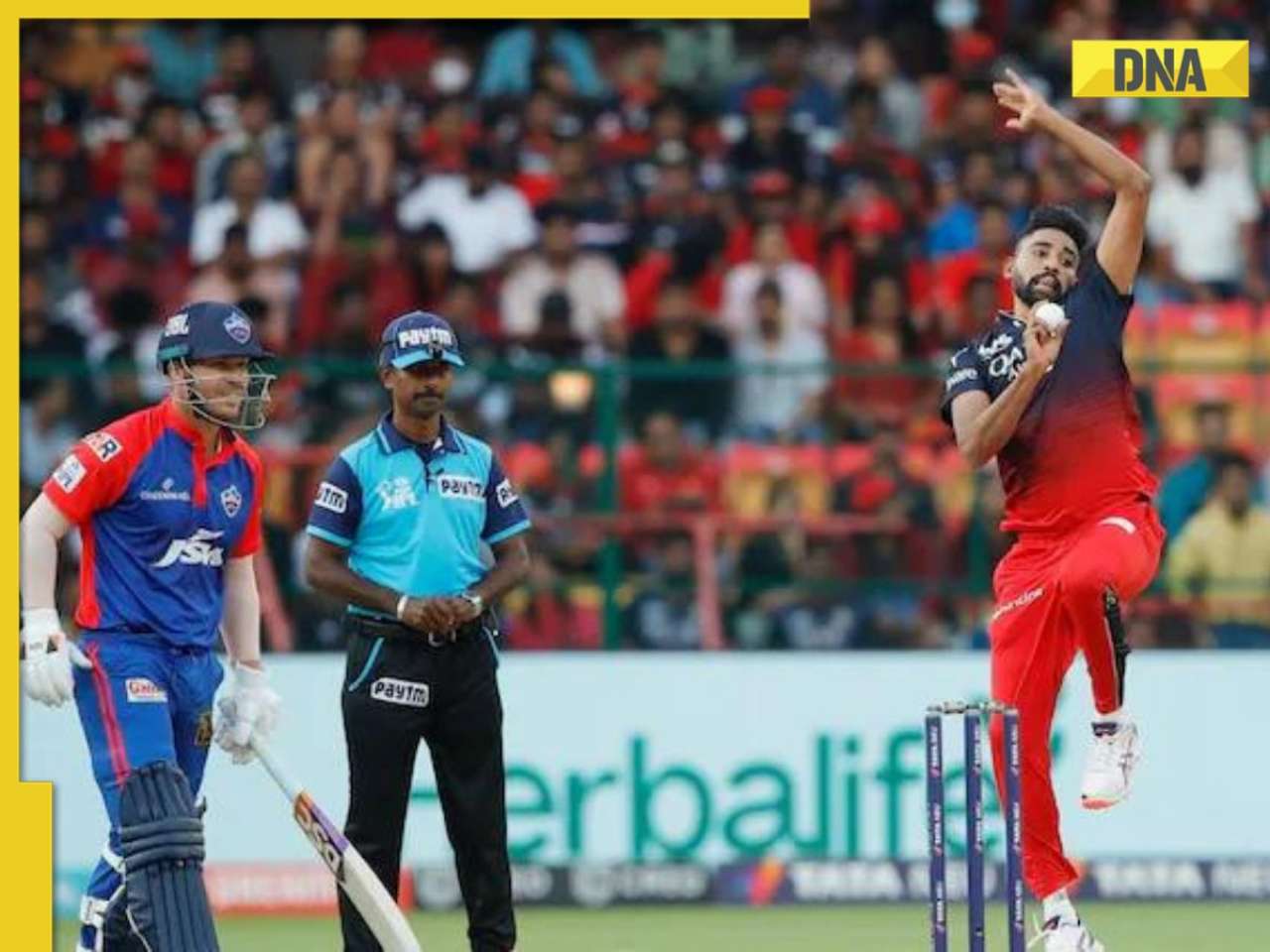
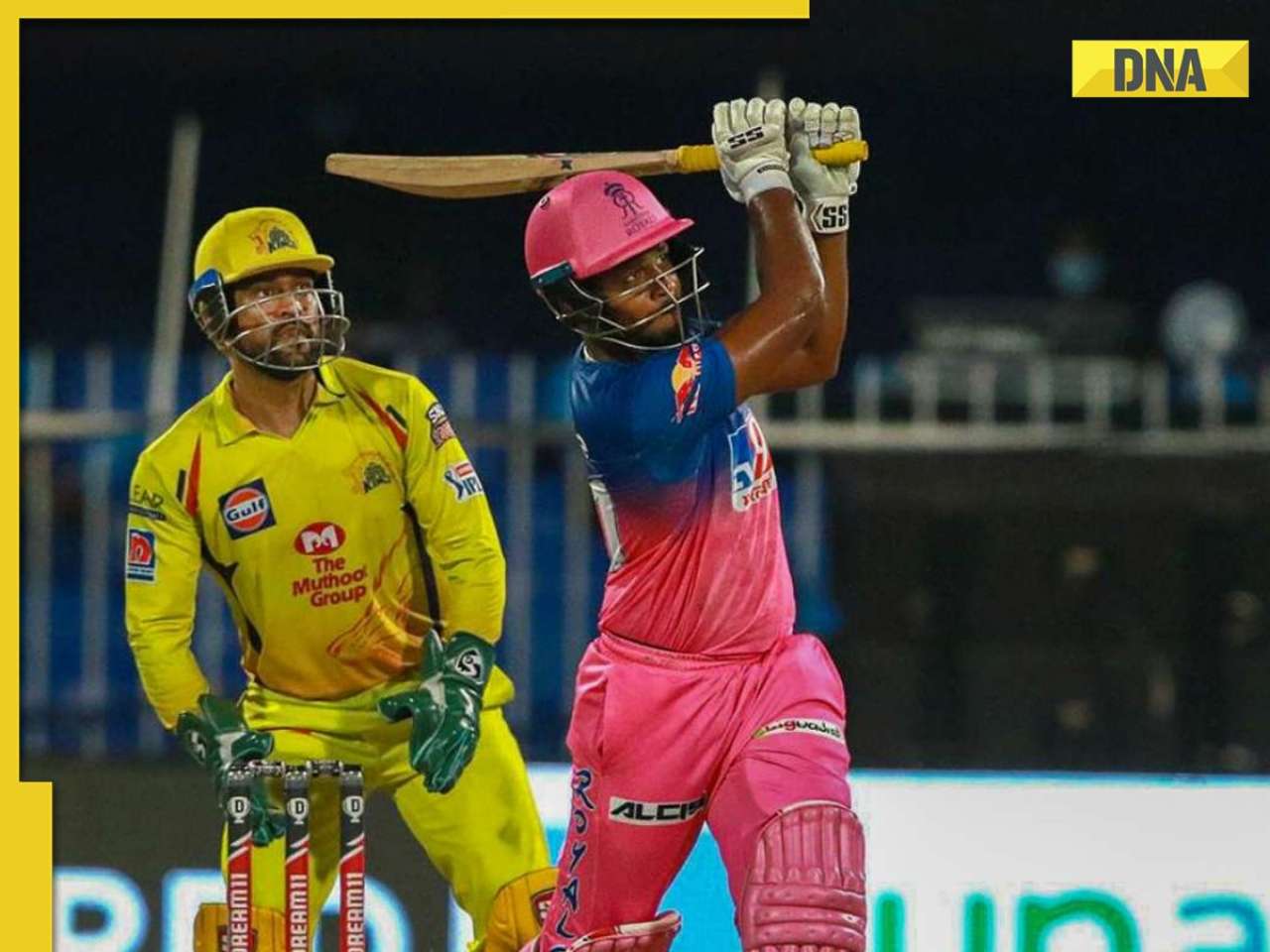
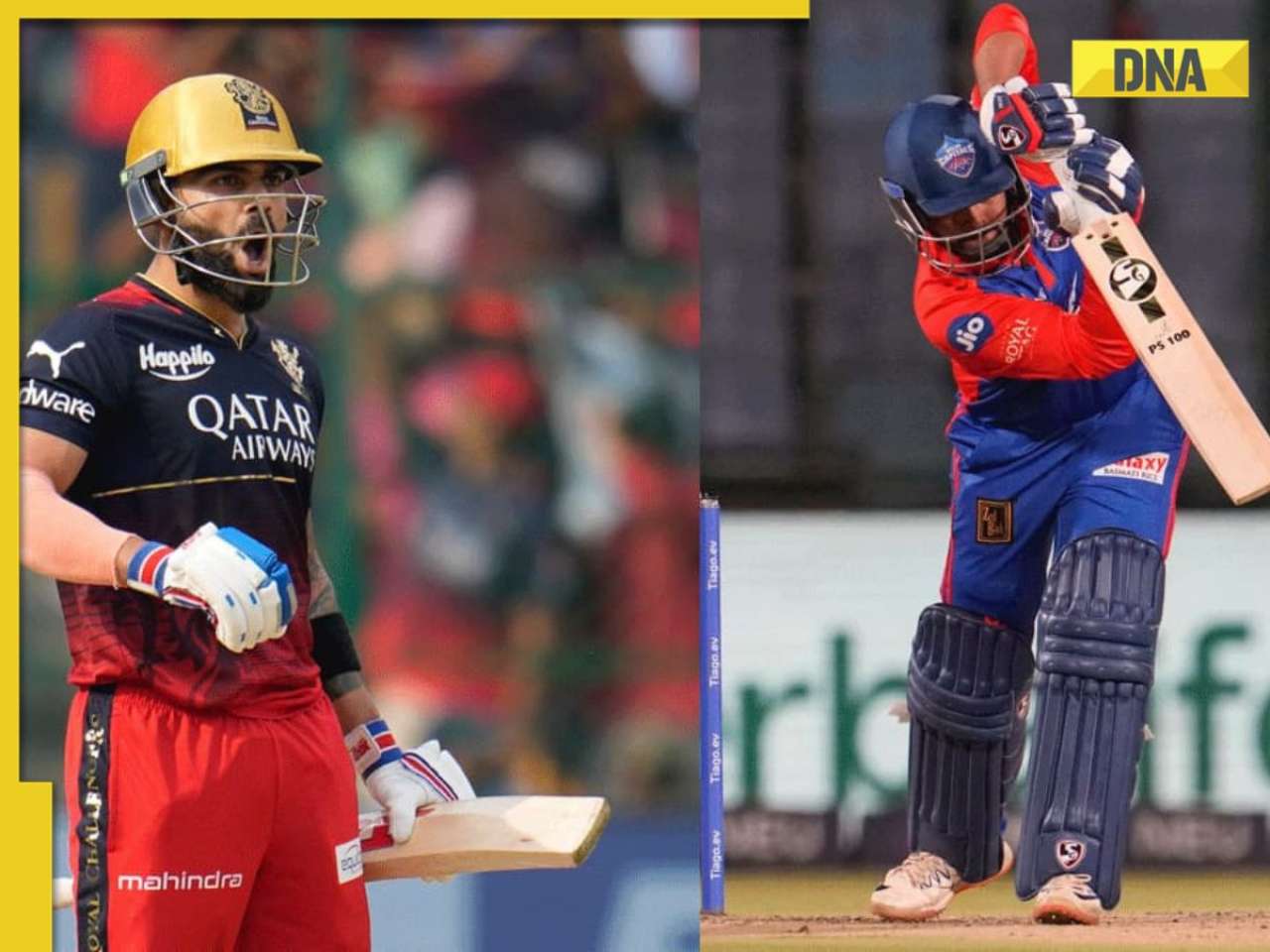
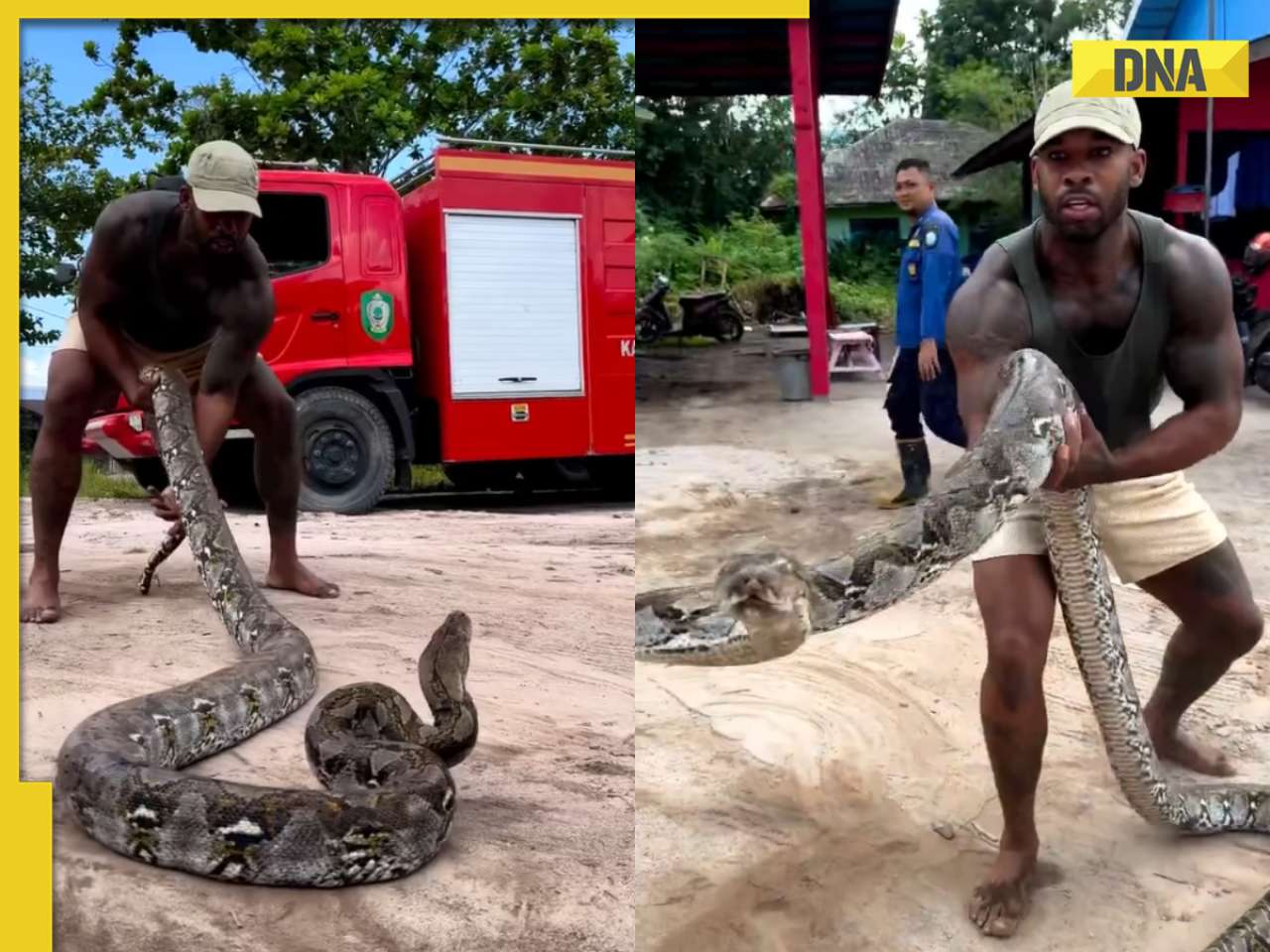
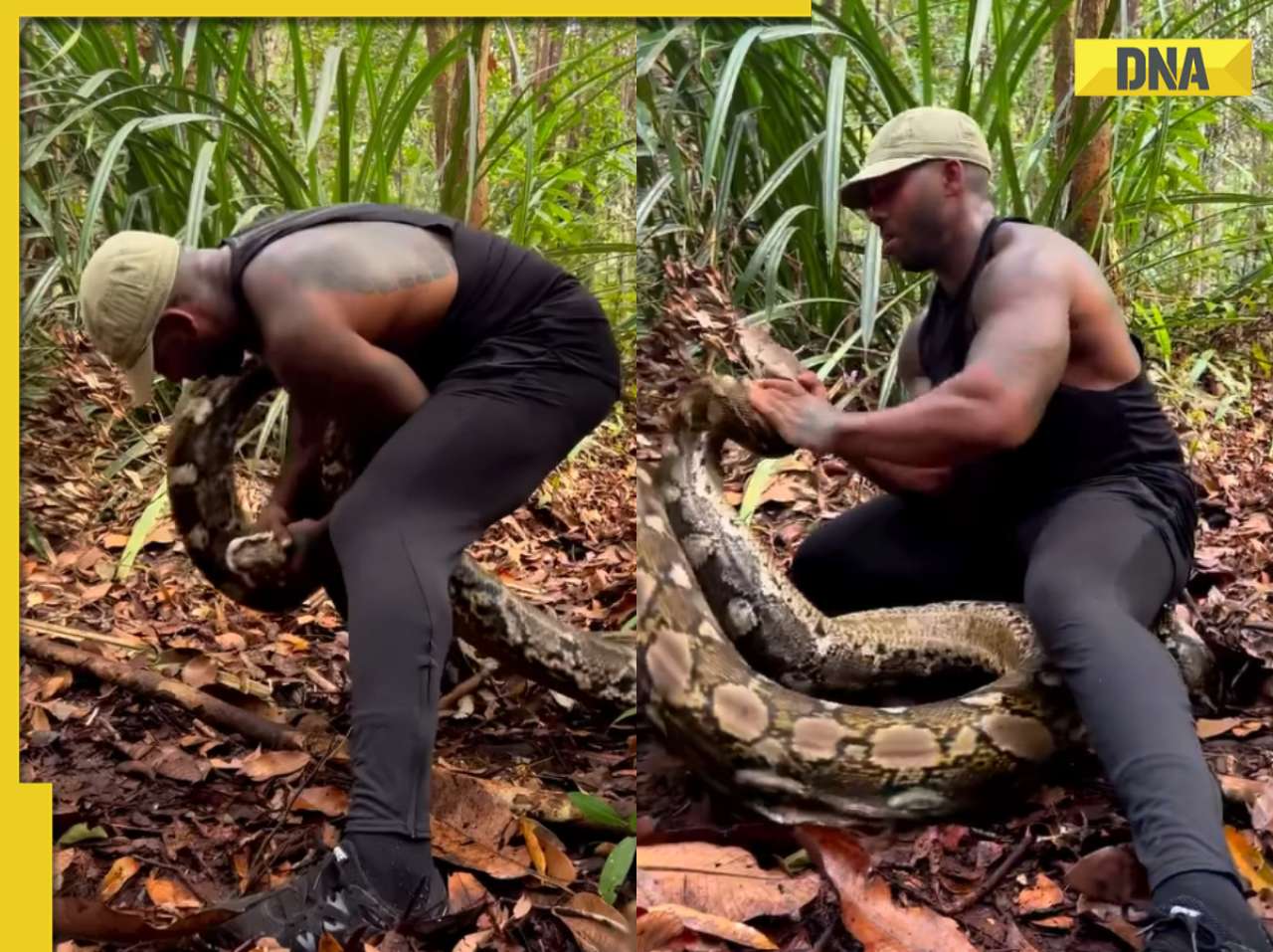
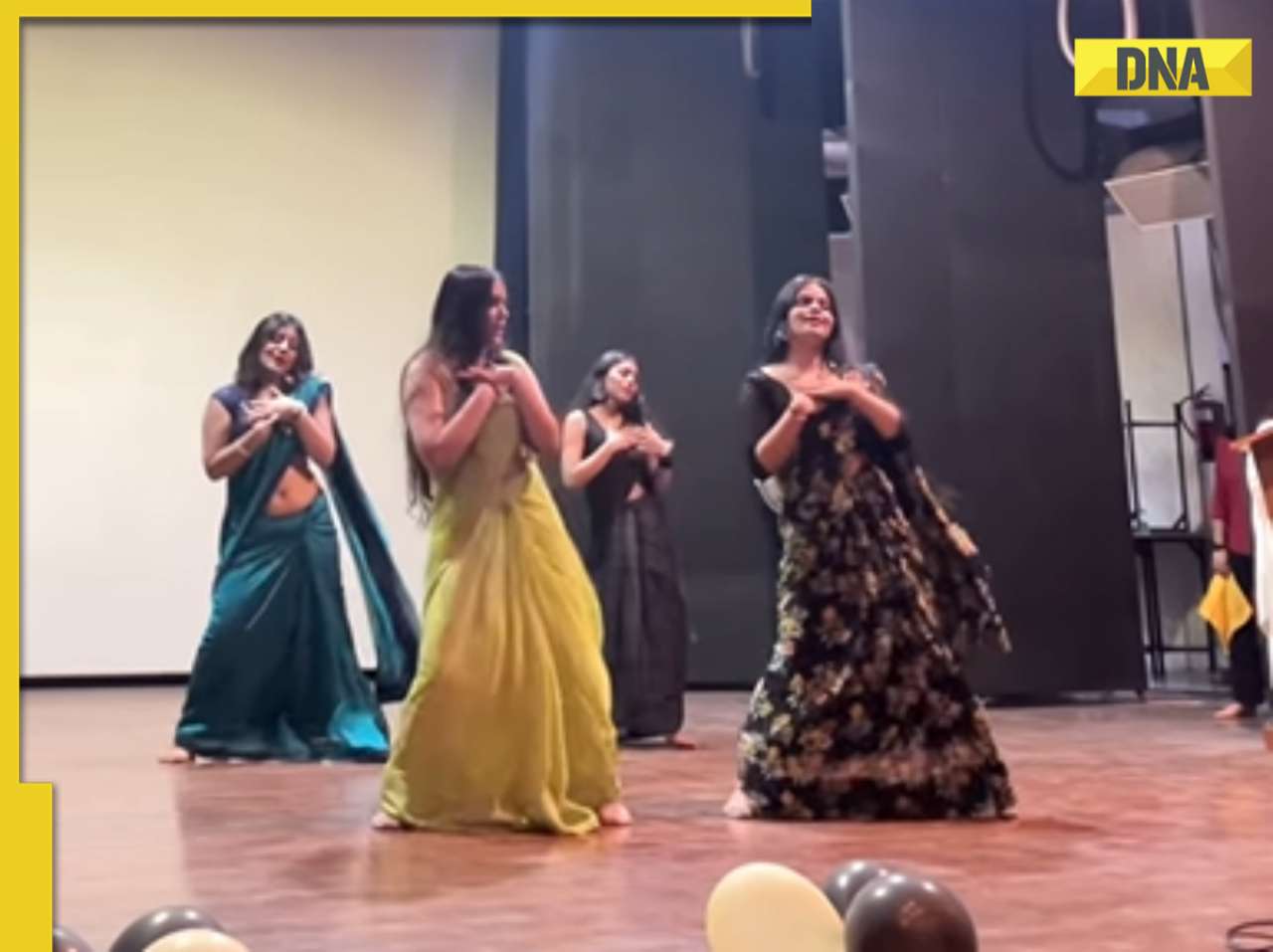




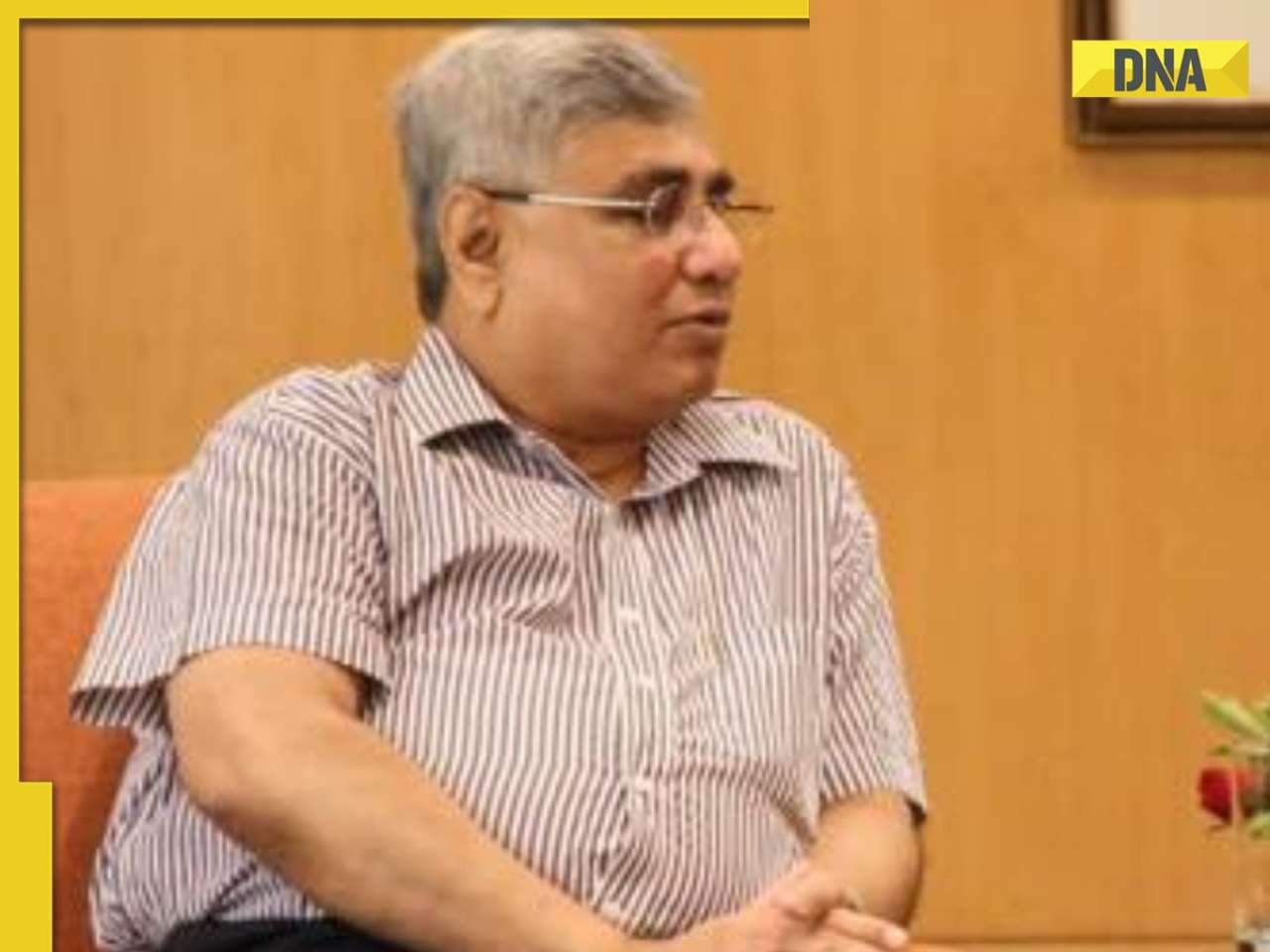
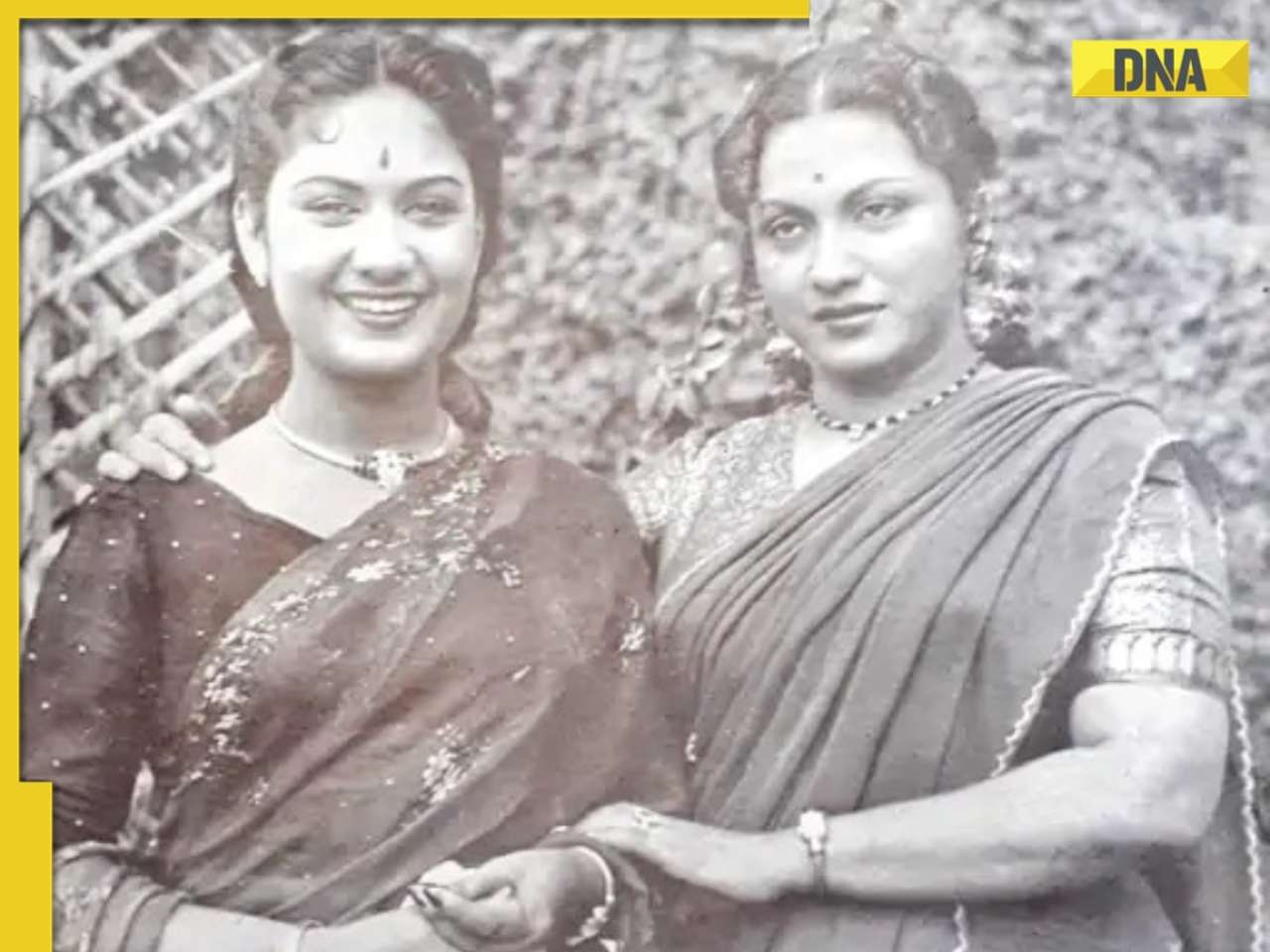


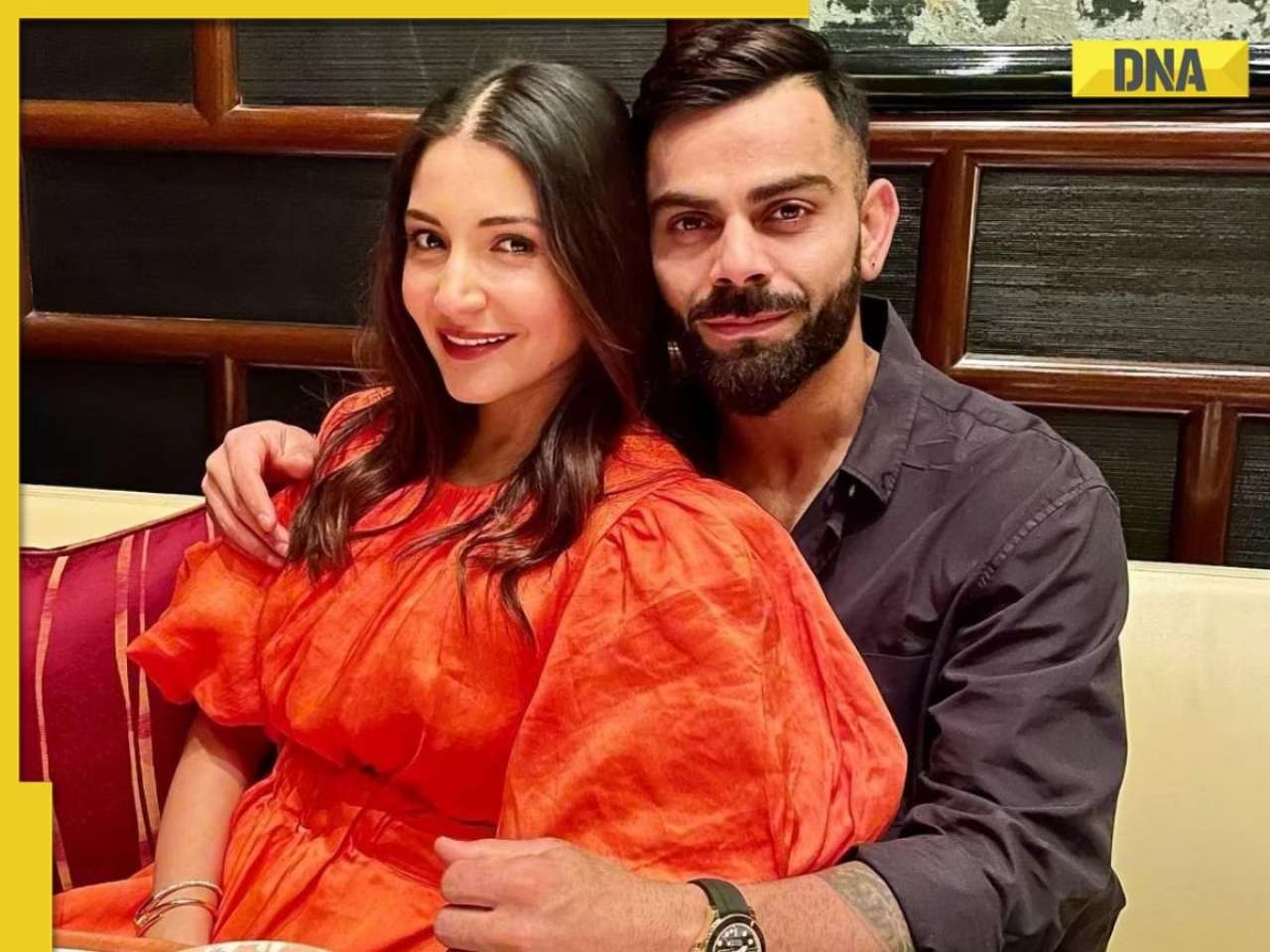




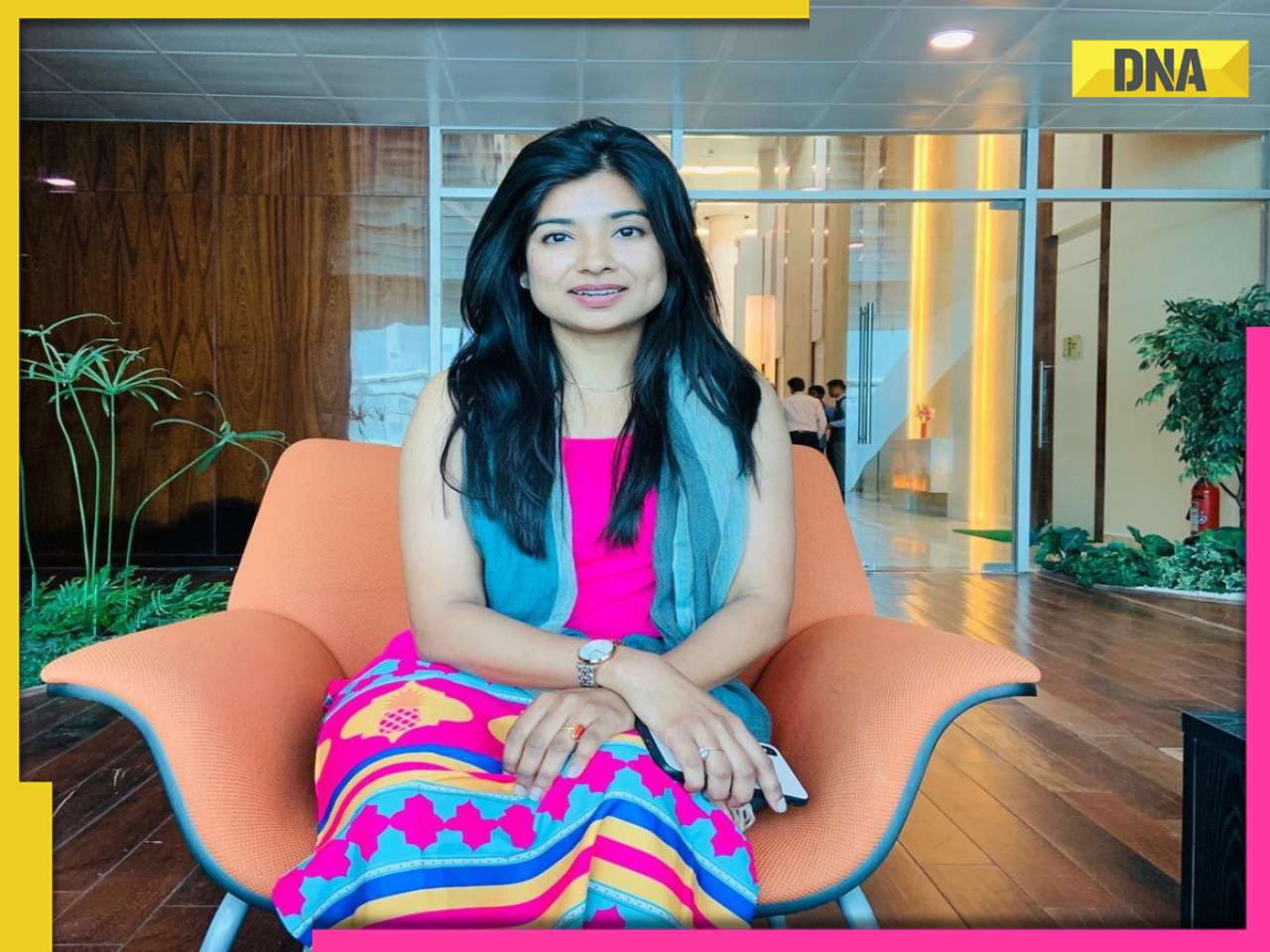






)
)
)
)
)
)